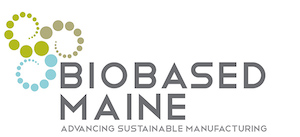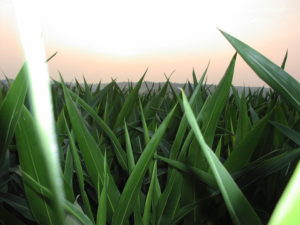Iowa Biobased Chemical Road Map Useful for Maine
Iowa recently published a road map to biobased chemicals, which is a useful resource to inform Maine’s efforts to advance biobased manufacturing. The report, “Biobased Chemicals: The Iowa Opportunity” echoes a vision similar to our own, that “alternative value-added bioproducts are important for further growth of the biomanufacturing industry…”
Conclusions reached by the Iowa report that are particularly relevant to Maine include:
(1) Retain and leverage biomanufacturing capital assets that utilize biobased feedstocks. In Iowa, this means corn wet mills and soybean facilities. In Maine, we have wood yards, biomass energy facilities, and pulp and paper mills with equipment potentially useful to biobased manufacturing (like digesters). We must retain these important assets to support the future manufacture of value-added biobased products.
(2) A modest tax credit can stimulate enough additional economic activity to offset the taxes lost due to the credit. Due to the fact that Maine’s biomass feedstocks (e.g., trees) must compete within the global bioeconomy dominated by cheaper corn and sugar cane, we can and should consider a tax credit to support biobased manufacturing from renewable feedstocks in Maine.
(3) Underutilized facilities should be used to generate pure sugars. Yes! We couldn’t agree more. Making cellulosic sugars from Maine’s renewable biomass is a critical first step in growing the biobased manufacturing sector. Sugars are chemicals building blocks and can be used to make higher-value chemicals, products, and advanced biofuels. Technology to make cellulosic sugars in Maine succeeded at the former Old Town Fuel & Fiber plant with the help of world-renowned experts on cellulosic sugars at the University of Maine. Even though sugar production at Old Town ceased due to an impatient owner/investor, Biobased Maine is working hard to bring together the necessary partners and facilities to promote more sugar production in Maine.
(4) The presence of a vibrant technological infrastructure will be an important capability for any state with ambitions in biobased chemicals. With Maine’s history of innovation and entrepreneurship, R&D capabilities at the University of Maine, and organizations like the Maine Technology Institute, we have the assets needed to support innovation in biobased manufacturing.
Using studies like this Iowa road map, as well as other road map examples from Minnesota and Malaysia, Biobased Maine is working on drafting its own Road Map to Advance Biobased Manufacturing in Maine, in partnership with the University of Maine and Environmental Health Strategy Center. This road map will give potential investors the data necessary to consider investment in Maine. With biomass cost curves, an inventory of industrial infrastructure, workforce, transportation, and financing data (among other elements), the road map will help fill in critical gaps that potential investors have told us are critical to their investment decisions. The road map will also identify strategies to overcome existing barriers to attracting investment, including the high cost of biomass in Maine.

